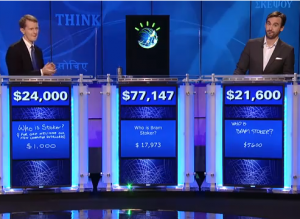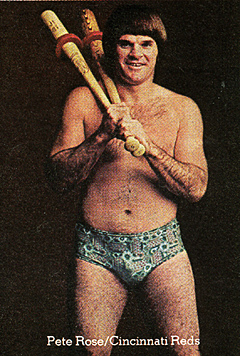Let’s play a game. (Save your energy looking for a trick, or a loophole in the wording. There isn’t any. Just read.)
Behold a bag with 3 balls in it. One is red, each of the others is either black or white.
You get a choice. You’ll receive $100 if you reach into the bag and pull out:
A. A red ball. (These are straight-up gifts, with no risk on your part. It’s not as if you have to pay $100 if you don’t choose a red ball.)
B. A black ball.
Pick one. Write down your answer. We’ll need it in a couple of minutes. (And don’t think anyone’s trying to screw you here. The non-red balls came at random from a giant vat of balls containing 1000 white ones and 1000 black ones.)
Okay, same bag, only now with different (and more generous) rules. You get $100 if you choose a
C. Red or a white ball.
D. Black or a white ball.
Again, pick one.
Now look at your answer from the 1st question. Considering that the answer consisted of only a single letter, you probably didn’t need to write it down and can thus recite it from memory, but many of you are slow, which is why we disabled comments.
If you’re like most people, you selected A and D. Which isn’t wrong nor right, but it is inconsistent.
Regarding the A-B choice in the first example: Most people pick A because it’s a “sure thing”, in a manner of speaking. You have a fixed 1/3 chance of winning if you pick A. If you pick B, you might have a 1/3 chance of winning. Or a 2/3 chance. Or possibly no chance.
In the second example, most people pick D. Again, because it’s a “sure thing”. Choose D, and you’re guaranteed a 2/3 chance of winning. But if you pick C, yes, you might have a certain chance of winning. Or a 2/3 chance. Then again, you might have only a 1/3 chance.
So why is it that if you indeed picked A and D (or B and C, which hardly anyone does), it makes you inconsistent?
If you choose A, you’re assuming that both the non-red balls are white. (Think about it.)
And if you choose D, you’re assuming the opposite – that at least one non-red ball is black.
The psychological revelation here is clear: people hate risk that they deem unnecessary, even when said risk is anything but.
“No, but I KNOW I have a 1/3 chance with A. I don’t KNOW that with B.” Yeah, but it doesn’t matter. Ultimately, it doesn’t matter whether you pick A or B, and it doesn’t matter whether you pick C or D. Each of the former has a 1/3 chance of paying off, each of the latter has a 2/3 chance of paying off. Pull a ball out of the bag (or out of other bags that fill the same conditions) 900 times, and on average it’ll be red 300 times. It’ll be black 300 times. It’ll be red or white 600 times, and it’ll be black or white 600 times. Absolutely and without exception.
Humans are awful at assessing odds, that’s not news. Go to a lottery ticket kiosk or casino floor if you doubt that. But here’s a situation where people know the odds and are still somehow convinced that there’s a way to beat them, by eliminating uncertainty. (Or believing they’re eliminating uncertainty, when in fact they aren’t doing a thing.) And this for a game with nothing but upside.
How does this manifest itself in our daily lives? It happens all the time, and in more subtle ways than you think. The investment that pays 10%, or the one with half a chance of returning nothing and half a chance of returning 20%? There’s a particular kind of person who wants the certain payout and another who’s willing to gamble, but again, that’s not the point here. The point is that if you are going to be that conservative person who wants a guaranteed payout no matter what and will gladly forgo the possibility of greater riches (because you figure your metaphorical bag probably contains 2 white balls), you should still hold that assumption when the payouts increase across the board (instead of assuming that well, if I look at it from this angle, then there’s either 0 or 1 white balls in there and my initial assumption about 2 white balls was wrong.)
Selecting “B” or “C” isn’t embracing the fear of the unknown. It’s coldly assessing the situation and saying, “This is no worse than selecting ‘A’ or ‘D’. I can’t assume the deck is stacked against me in one moment and then think it’s stacked the other way in the next.”
But what if you can’t afford to lose? What if the payouts above were -$100 instead of $100? Again, it shouldn’t matter. There’s nothing you can do minimize your chance of loss, although maybe you can convince yourself otherwise.
In our example, it doesn’t matter what you pick. In real life, it usually does. But either way, there’s no point in holding hunches only to discard them seconds later. And in cases where the inputs and outcomes are random, there’s no point in even holding those hunches in the first place. Expected value is expected value.







